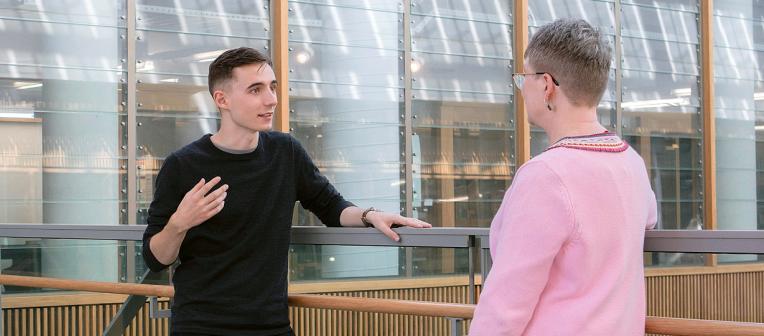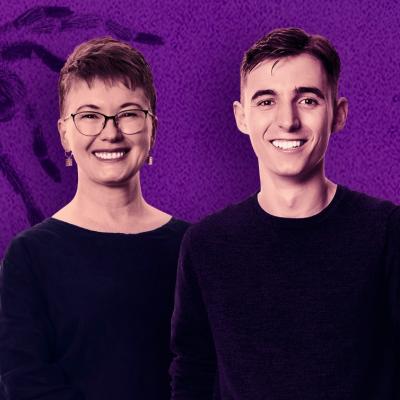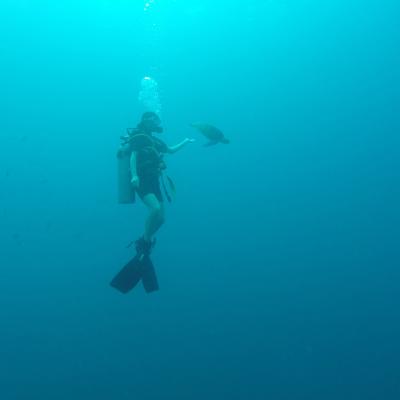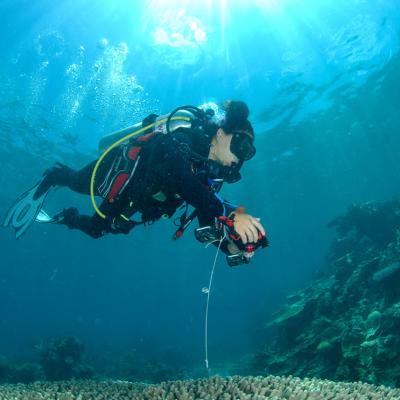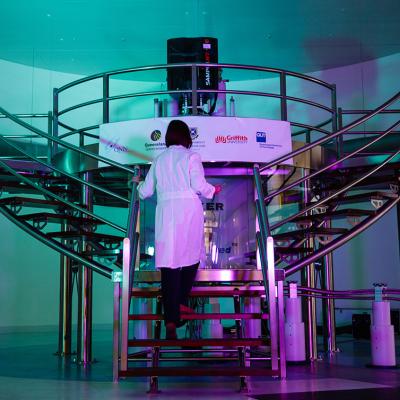Considering studying science at university? You may have lots of questions. We're here to help you find answers.
- What does a day in the life of a science student look like?
- Is a Bachelor of Science a good degree?
- What type of skills do you learn in a science degree?
- Are science degrees worth it?
- What kind of job can I get with a science degree?
We've interviewed a UQ student and academic to find out. Jasper is a Bachelor of Advanced Science (Honours) student and Professor Susan Rowland is a former UQ science lecturer. They’ve teamed up to answer some of your questions and uncover how UQ can give you the skills you need to face the future, even when you don't know exactly what the future will look like.
Let's find out if science sounds like the study area for you.
Since this article's original publish date in August 2020, Jasper has finished his bachelor's and is now at Queensland Brain Institute (QBI) studying his PhD on the ecology and anatomy of marine fish brains.
What do you think employers in your industry are looking for and how do you think UQ has equipped you with these skills?
Jasper: I think employers are looking for good results. They want someone who’s going to work hard. I think more than that, they're probably looking for experience. In terms of science, that would be research experience, which I've been offered in several courses along with research projects across my degree.
Susan: Something people are really looking for is a really positive, can do attitude. It's something that we really love to see in students but it's also something that we really love to see in employees. When you interview somebody, you look for that. That really positive sense that ‘I can do it’ and I'm going to work with other people to do it as well. I like that in students.
If you could give me one piece of advice that would set me apart as a job candidate, what would it be?
Susan: One of the things that we really look for when we're interviewing people is that they have thought about who they are and what they can bring. If you ask people any question in a job interview, you're asking them what they can bring to the job. If they can't give you an answer, then it suggests they don't really know themselves very well. We like to have people working with us who have a sense of who they are and know that they have something valuable to bring and are able to bring that, it's very powerful.
To equip our students with those skills, we have a number of really exciting programs. One of the ones that I'm most passionate about is the Science Leaders Academy in the Faculty of Science. Our science leaders are students who want to be part of the community in science. They do leadership training and they get involved in things like mentoring other students, helping other students study, setting up orientation days and representing the university. One of the most important things that students do through both the UQ Employability Program and the Science Leaders Academy, is they learn about their strengths and they realise that those strengths are actually very special and unique.
Not everybody's the same and everyone has different gifts they can bring. One of the things we really like to do at UQ is to help people develop those and understand what they are. We do this by giving them an opportunity to test themselves in the workplace and in professional environments. It's a really valuable learning opportunity and we also really love working with the students to do it.
What have you learned about yourself since you began your studies at UQ?
Jasper: I’m a very different person now to who I was two and a half years ago when I started. I have learned that I can be more confident and I’ve learned to put myself out to people and roles – the world's my oyster. I've taken on a lot of opportunities and I have been to some pretty cool places since I've started here, and I've done some cool things. I think the most important thing I've learned is that I can do things and I’m capable.
If you were employing the next science graduate, what would you be looking for?
Susan: I'd be looking for somebody who wants to take risks. There's no point in living your whole life being safe. There's no point in living your whole life doing exactly what somebody tells you to do all the time. What we're looking for is people who are inventive, who are curious, who know what they're doing. When they come to work, they're coming because it's fun and it's interesting, not because they have to be there. I'm always looking for people who are happy to show up emotionally, physically, and intellectually.
What has been the most unexpected thing you've been happy to discover at UQ?
Jasper: The fields of study is probably the biggest one. I didn't come to UQ intending to study biomedical science and biosciences – I was intending on doing physics, and since then I’ve found biology and biosciences and decided that's what I want to do with my life.
Susan: How did you discover that?
Jasper: I started my first semester here doing physics and then I took an elective in psychology. I wasn't really interested in general psychology, but I found I was really interested in neuroscience. I'm still interested in physics – I love it, but it wasn't something I wanted to spend years studying so I decided to transition to biomed to do neuroscience and it’s been a good choice.
Susan: So that's part of the flexibility of the program that you're doing, you didn't lose any time at all. That's something I actually really love about science programs – generally they're pretty open in terms of the pathway you can take. We see a lot of students come in with one idea about what they think they love, often it's because it’s something they've been really good at throughout school or maybe they’ve had a wonderful teacher and they've realised that it’s something they really enjoy. Then you come to university and you discover that thing’s still good, but there's a whole bunch of other things as well that you haven't thought about or hadn't been able to experience before.
What is it about your approach that makes us the most employable graduates in the state?
Susan: I think UQ graduates have a tolerance for risk, a tolerance for ambiguity and a tolerance for being challenged, and I think all of those things are excellent. There's not a lot of spoon feeding here, there's not a lot of hand holding and there are a lot of challenges – we expect a lot of our students. I think we also really appreciate the great work they can do and the exciting thinking that they do with problems. What we're trying to do here at UQ is produce students and graduates who think for themselves, who solve problems, who can stand up and say, ‘Yep, I'm here and I'm going to give that a go and I'm not scared’. It’s something that employers really look for.
How does the way you learn at UQ teach you the skills you need to face an unknown future?
Jasper: For me it's been lots of practical experience. There's things you will learn in a lecture but there's also other things that you only learn from actually doing research. More generally, having the ability to communicate my ideas and my thoughts and I feel like that's important in terms of being able to deal with the unexpected.
Susan: So you've done some research. Can you tell me about that?
Jasper: My project was in neuroscience and clinical neuroscience, looking at MRI scans on white matter pathways in elderly patients with strokes and seeing how that affects their abilities on cognitive tests. It's a little bit out of left field for most science students, it's sliding into the realm of psychology, but it's definitely a lot of fun.
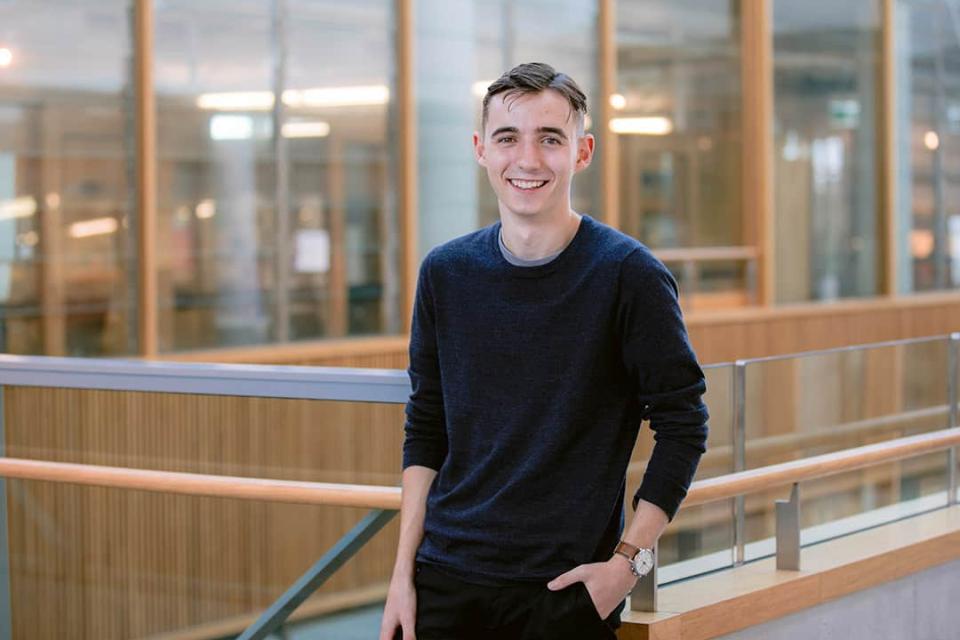
What are some of the coolest jobs your former students are doing?
Susan: My students have gone on to do some really interesting jobs. One of my students is now an academic at another university where she's helping academics develop courses and programs. Another one of my students actually looks after all of the data for a really large sports company to help coaches manage the data they have from their high performance athletes. Another student works in Singapore as a business lead developer. He’s a scientist but he also has the ability to interact with people in a professional way so he spends a lot of time going around to other organisations, talking with them about what their needs are and then developing ideas to help people with these needs.
Jasper: What about the students you had when you were still mainly doing biochemistry and molecular biology?
Susan: One of them works for the blood bank in Minnesota, she runs all of their clinical trials. I have a student who manages PR for a large research institute. She has a PhD in biochemistry but she also has developed skills in the PR space, she understands people and she understands the science. I have two students who finished their programs with me and then went on to do medicine, so they’re now using the science research as part of their medical degree.
Something that people don't realise about science is that it's something you can take to a whole bunch of different places. You have your scientific understanding, your heavy scientific way of thinking, but then there are all these other skill sets that you can lay over the top and combine, so you end up with a bunch of really interesting career options. The thing I like about science is that you're never trapped. You’re not going to do the same thing every day for the rest of your life.
What does a day in a life of a UQ science student look like?
Jasper: I wake up, I have breakfast and go to uni. Usually, I’ll have a lecture straight up and have 2 or 3 lectures a day, most days of the week. Then I'll usually have a practical. I also hang around with friends.
As a science student, there's not too much work to do at home because we do most of our work in lectures or in labs. The only stuff you have to do at home is assignments and occasionally revision if there’s a test coming up.
Susan: So tell me about your labs, what happens in your lab sessions?
Jasper: I've done molecular biology where I'm mixing up different compounds, applying it to cells, measuring out what proteins we find on gels. I've done genetics labs where we get transfecting different genes into cell cultures and ensuring the responses. I've done other labs looking at how exercise affects different functions. I did a weird project in one lab which looked at how heavy metal music affects your heart rate during exercise.
What opportunities do students have to get hands-on experience in our industry?
Susan: It's really important for students to get hands on experience, and there are a number of different ways that UQ does that, and a number of different ways also that the Faculty of Science does that. UQ actually has the biggest undergraduate research program in Australia. We have hundreds of students that do undergraduate research, so essentially what that means is they do a semester over summer or winter, where they spend time in a professional research lab. Depending on your program and your interest you can do different amounts of this, but it's certainly never something that's closed off to students. Academics really like having students in their research groups and students can choose whatever they want to do.
The next thing that we do is our UQ Ventures program. I think this is a really exciting program for students. In particular, we have an international Startup AdVentures and that's something where students can get course credit while going to work with a startup company in places like Tel Aviv, Shanghai, San Francisco or Singapore. We have a lot of programs that have work integrated learning, so students can get course credit for doing a long term placement in a workplace, and in some cases we help students find those placements. We also support students doing work experience.
Explore the Bachelor of Science and Bachelor of Advanced Science, or discover what it's really like to study other programs at UQ.

